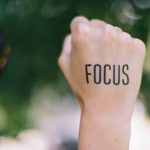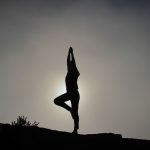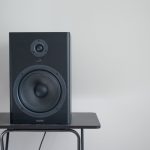Ever looked in the mirror and not liked what you see? Ever criticised yourself for being too fat, too skinny, too tall, too short? Do you congratulate yourself on your long legs, flat stomach or shiny hair?
Whether it’s positive or negative, these thoughts and beliefs towards ourselves are a classic example of our ego in play, and it is the ego (known as asmita) that we’re going to take a long, look at in our second article on the kleśhas.
Who Are You, Really?
The ego is in the driver’s seat whenever we believe something about ourselves to be true and permanent. Ever had a relationship that you thought would last forever suddenly end? It was the ego telling you it would last forever. Do take pride from always pushing yourself further every time you get on your yoga mat? That’ll be the ego satisfying itself.
It’s the ego that gets upset if we spot a grey hair, lose a bet, or drop a fiver. The ego gets excited when we get a new job, and sad if we get made redundant. Basically, the ego is at play whenever we believe that our possessions, our relationships, our jobs and our appearance form who we really are. When we believe this to be true we set ourselves up for pain, because ultimately we will lose all of those ‘things’ that make us ‘us’.
So if our jobs, our partners, our children and pets, our homes and our hobbies aren’t really who we are, then who are we? To understand this, we must first understand more about the ego.
You’re So Vain, I Bet You Think This Article’s About You
A good way to picture the ego is to imagine that you are looking in a mirror. You think you are looking at an image of yourself, when a mirror really reflects your ego: that which you imagine yourself to be. This reflection is easily disturbed, like when a stone hits a pond and causes ripples. Imagine that the stone is any sentence or thought beginning with “I” — “I’m too fat,” “I’m having a good hair day,” “I need to be successful” — all of these thoughts create a ripple in our reflection, distorting what we believe ourselves to be.
Often we use the word ego to refer to some trumped-up celebrity who believes their own hype, that person in your gym who always seems to be checking themselves out in the mirror, or a friend who can never admit when they’re in the wrong.
It’s usually fairly easy to judge someone else for being too egotistical. We may even ourselves have moments of being, as my Nan used to put it, “too big for our boots.” There is nothing wrong with feeling good about yourself or wanting to improve yourself. Certainly for most of us our desire to practice yoga comes from a desire to be fitter, more flexible, to de-stress, and numerous other factors. There is of course, nothing wrong with this. It’s just that these results are the positive side effects of yoga, rather than the goal.
Seeing A Clearer Reflection
“All the practices of yoga are just to remove [the ego].”
~ Yoga Sutras, verse II-6
Yoga is a purification process. Through our practice we cleanse the body of toxins, free up the mind, learn to control the breath, and ultimately pursue a clarity of mind that invites us to think and feel differently. This is the perfect context to begin separating our ego from the real ‘us’, and allowing ourselves to be happy exactly as we are. Once we recognise that nothing lasts forever, we can just relax into our body, our lives, and enjoy life in the moment. Sounds good right?
Recognising when the ego is in control (as opposed to when the real you is shining through) can be tricky at first, especially when we reflect on situations where our temper or insecurity get the better of us. Not only can this honest contemplation be a bit cringe-worthy, but it’s not really something we’re encouraged or rewarded to do. We live in a society where individualism and consumerism encourage us to feed the ego. Advertising campaigns tell us we need products to become the best version of ourselves, and feeds the belief that we’re never good enough as we are.
Once you strip away those layers of false identity and begin to explore the ‘True Self’, we realise that we are whole just as we are. Without the buzz of all that other stuff going through our heads, it’s easier to feel connected with the world around us and this can lead to a great sense of satisfaction with yourself and your life, just as it is.
Exploring The True You
There are a few things you can do when the ego takes over:
- Try connecting in with your breath every day. Count each inhale and exhale up to ten, and see how you feel afterwards.
- Take time to reflect on what you’re grateful for.
- If you struggle with your self-image, or feel disconnected with your body, try practicing yoga with an attitude of kindness (or ahimsa) towards yourself. It doesn’t even have to be yoga – singing, dancing, walking in nature, whatever it is that makes you feel nurtured and nourished, do more of it!
Ultimately the first step towards realising that you are more than the skin you are in is loving and caring for that same skin.
Realising that there is more to you than the story you carry with you can be a very liberating thing. Once you do, you can feel more connected to the world and the communities around us far more than getting another 20 likes on Facebook ever will.













